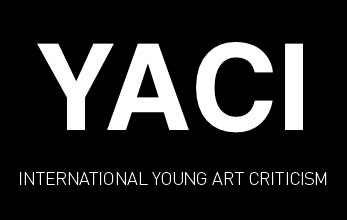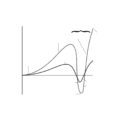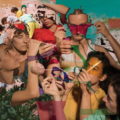Rethinking time and shared spaces through performative practices
For the original German version of this text please visit pokusberlin.com
A Shareholder is a person1 who holds a share of a corporation and thus has a say in its affairs. The prevailing structures and the conditions which enable a person to hold this position are complex. Often, such a position is associated with exclusion. A small circle decides, usually over a large group of employees. It has less to do with sharing, rather with communicating. The direction of this conversation is one-sided, reinforced by a hierarchical framework.
ShareHolders is the name of Montag Modus’ three-part performance exhibition series. As a play on words, it not only reverses power hierarchies, it also attempts to create an exchange, a collaboration between performers and spectators through participatory formats. It is about community, cohesion and warmth across national and gender boundaries. Sharing and holding become key concepts that are explored, tested and discussed. The inaugural event focuses not only on social but also on climatic changes in our pandemic times, on the preconditions of coming together, and on the politics that decide how spaces are shared.
Taking a seat at a table on the banks of the Radialsystem in Berlin-Kreuzberg, I listen to Maria Magdalena Kozłowska’s Opera to the People. The performer sails along the Spree in a rowboat, having to withstand the waves of the passing party boats. A little later I get up and go on to a tent on the meadow. Inside, theater maker Pankaj Tiwari is presenting the concept of TENT: A School of Performative Practices, a decentralized, nomadic institution that aims to create an open platform for exchange between artists, interested people, and schools of thought through interactive formats such as talks and dinners. Maria Magdalena Kozłowska, who has meanwhile returned to land, distributes grains of rice to the surrounding audience, which are meant to stand for the metaphorical continuation and propagation of the idea of TENT. Pankaj Tiwari also invites the audience to a dinner in the tent. Later, a recorded version of the lecture will be played as an audio track over a video projected on the ceiling of the tent. That evening, Maria Magdalena Kozłowska is a guest at TENT and, together with Pankaj Tiwari, develops the performance Constructive Interference, which is intended to negotiate questions of proximity and thus initiate liquid forms of relationships.
The sun is slowly sinking over the Spree as I descend the stairs to the terrace of the Radialsystem. I am now on the “Deck.” Here, the performance Rub your face onto your shoulder by Sunny Pfalzer and Marshall Vincent begins as a guided meditation. Spectators take their seats on cushions and fabrics painted with red lines, they lie down, making themselves comfortable. Painted cloths hang like sails between the concrete pillars and frame the space, creating a coziness. Sunny Pfalzer lies on the floor and breathes into the microphone, shortly afterwards they stand up and ask us viewers to close our eyes. They take us on a mental journey through the building, down to the square in front of the entrance, where Pankaj Tiwari’s tent is positioned, cajole us with the soft songs of Marshall Vincent and share a story with us: The textile cushions on which the audience lie down were part of a performance which took place last year. They were carried, they were embraced, they are charged by a togetherness that has been. Now, in the present, they represent the performers of that time and embrace those lying on them. With eyes closed, temporal moorings loosen and a sense of connection slips in. When Sunny Pfalzer offers us to open our eyes again, the orange sun is so large and flat on the horizon that it is difficult to see the two performers, but this does not seem to be about watching, observing the performers. Rather, the mindful journey is inward, to feel the connectedness with past, present, and future in the form of an embrace, in the liminal center with flaming edges running out, like those of the sun.
Passing through the concrete staircase, I float back to the first floor and find myself in a hall where the video installation DEBRI by Maru Mushtrieva and Liudmila Savelyeva is waiting for spectators. They curiously enter the immersive oval surface on the floor onto which the pixelated video work is projected and try to attract the small square pieces with the force of their bodies. Sometimes it even seems to work and the pixels gather around those standing on the projection surface. But then the pixels form themselves into text, communicating with us bystanders, then taking us on a tour of rendered, impassable fern forests and cratered, water-filled, rocky landscapes. Computer-animated, numerical areas that seem hostile to human life. Are they parables for a dystopian future scenario of a man-made world? The audiovisual installation grew out of the research project Efflux and Remnants and explores “debris” – impassable forests, translated from Russian – as an umbrella term for complex, unexplored occurrences, and makes reference to open-access spaces and space explorations that have left not only astro-garbage and space debris in orbit, but also raise questions of shared spaces. How can we live together if we make our habitats and those of many animal and plant organisms uninhabitable?
Unfurl the Jukebox Musical: a shareable cypher by Justin F. Kennedy, Emma Waltraud Howes, Ethan Braun, Caterina Veronesi, Marcel Darienzo, and Marta Martino takes visitors to a cold and climatically challenging celestial body. Also in another room the visitors are taken into a cosmic world. In Performance III (something flat, something cosmic, something endless), which continues throughout the evening, Serafine1369 explores transformations and permanent states, repetitions and expansions. Space and time seem to dissolve in the spoken texts as if in a dream, the performing body is simultaneously bending, transforming. Serafine1369 questions the colonialist and capitalist concept of time, which is composed of linear minutes and hours, and takes space for their own writing of time by moving in slow motion, moving rapidly and sometimes imperceptibly. As if time were standing still, running backwards, or yet continuing at velocity. In a similar, space-time-dissolving manner, Hollow & Omsk Social Club’s performance Sprawled Soilware takes place online, independent of location, and leads through hybrid, technological landscapes as an extended audio walk experience via smartphone.2
Seven different approaches to performance share the same orbit like different planets, orbiting questions of proximity and distance, of sharing and giving, of removing and transforming. ShareHolders is a selection of interactive docking stations for the autopoietic feedback loop,3 as an interplay with the co-present spectators or, in the words of Şeyda Kurt, “It’s a utopia of simultaneity of a post-capitalist society where people merge into each other.“4 By giving us spectators the opportunity to alternate between and even become part of the performances, by having the performances question and thus attempt to dissolve linear descriptions of time, perhaps the idea of community which in capitalist societies is all too often characterized by exhaustive and hierarchical opposition can also be rethought. Thus voices that are often silenced in hegemonic gatherings have an equal say.
1 This means either a natural (individual human being) or a legal person (e.g. NGO or corporation). 2 soilware.net 3 Cf. Erika Fischer-Lichte, Die Ästhetik des Performativen, Frankfurt/Main: Suhrkamp, 2004. 4 translated from Şeyda Kurt, Radikale Zärtlichkeit: Warum Liebe politisch ist, Hamburg: HarperCollins, 2021.
Image: Sunny Pfalzer & Marshall Vincent Rub your face onto your shoulder; Photo: Dorothea Tuch






